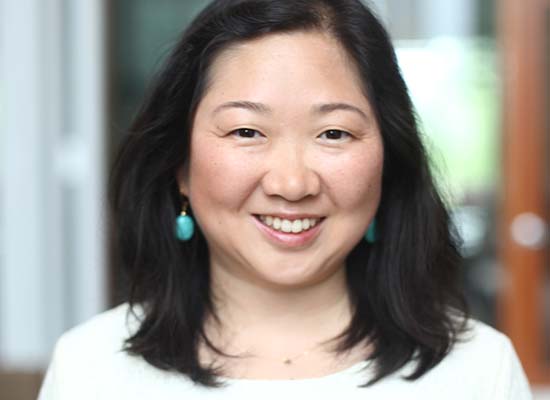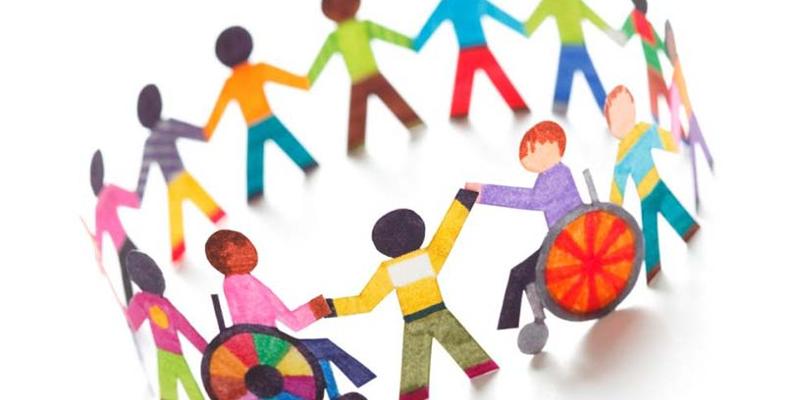 Sarah Jin Wong, assistant professor of education and director of field placement,
has recently published an article in Teacher Education and Special Education (TESE) available
on Sage Journals titled “Breaking the Cycle: Preparing Pre-Service Teachers for Disability-Related
Discussions.”
Sarah Jin Wong, assistant professor of education and director of field placement,
has recently published an article in Teacher Education and Special Education (TESE) available
on Sage Journals titled “Breaking the Cycle: Preparing Pre-Service Teachers for Disability-Related
Discussions.”
Sarah started collaborating with her co-authors (Christa Bialka from Villanova University and Nicole Hansen from Fairleigh Dickinson University) in February 2017. She initially connected with Christa and Nicole within the realm of a Facebook group called CEC-TED Early Career Faculty Special Interest Group. CEC stands for Council for Exceptional Children (the nation’s largest special education organization) and TED refers to its Teacher Education Division. Sarah says, “When I found out about TED last year, I knew I had found my professional extended family outside of BAC. This group of colleagues who work in teacher-preparation programs all around the country are some of the warmest, most welcoming, generous, brilliant, and gracious people I have gotten to know!”
The idea of preparing pre-service teachers to have authentic conversations centered around disability is very important to Sarah. Especially now as the diverse needs of children in classrooms are increasing rapidly and as we prepare our pre-service teachers to become educators who are capable of supporting students with various learning needs in what is hopefully an inclusive classroom, this skill set becomes highly relevant. The theory is that if the pre-service teachers are able to have open and productive dialogue around these topics themselves, they are much more likely to be able to facilitate such important dialogue with their own students, thus creating a more authentic, inclusive climate classroom. Therefore, this became an important objective for Sarah as she implemented the special education curriculum of the new dual-certification program at Bryn Athyn College. Sarah says, “Though we discuss disability-related topics in class, there are often ‘barriers’ that get in the way of our pre-service teachers having open and authentic dialogue around them.” Examples of barriers include novelty of the vocabulary and of the topics, uncertainty in word choice, often due to fear of offending, and even simply lack of experience. Therefore, intentionally embedding practice of these kinds of dialogue through various assignments like the ones described in the article, helps build this critical skill set. Sarah states, “Powerful human experience stories in the particular assignment that is described in the article have become such an effective tool that I use in the classroom to increase understanding and create connection.” So when she found that Christa and Nicole were addressing this need in similar ways in their respective programs, she was excited to establish connections with them, eventually leading to this publication.
Sarah says that she and her colleagues hope to turn this work into a more formalized research study, perhaps in the next year or two. They plan to gather both quantitative and qualitative data that will allow them to see the measurable ways in which the strategies discussed in the article are actually making a difference in the skill set of the teachers that they are preparing.
The abstract of the article is below. Click here to access Sage Journals and explore full article download options.
Teacher preparation programs play a seminal role in the development of prospective teachers, as they provide future educators with information regarding the rights of students with disabilities and the pedagogical means to support them in the classroom. Yet, few programs focus on how to discuss disability with students (Abernathy & Taylor, 2009; Cosier & Pearson, 2016). Once they enter into practice, many teachers hesitate to engage students in conversations about disabilities because they are unsure of what to say or fear offending students with disabilities (Crowson & Brandes, 2014; Gay & Howard, 2000). Because there is scant literature on how to best prepare pre-service teachers to hold disability-related discussions in their future classrooms, in this article, the authors aim to fill a void in current practice by providing examples of activities, assessments, and related materials that enable pre-service teachers to talk about disabilities.
